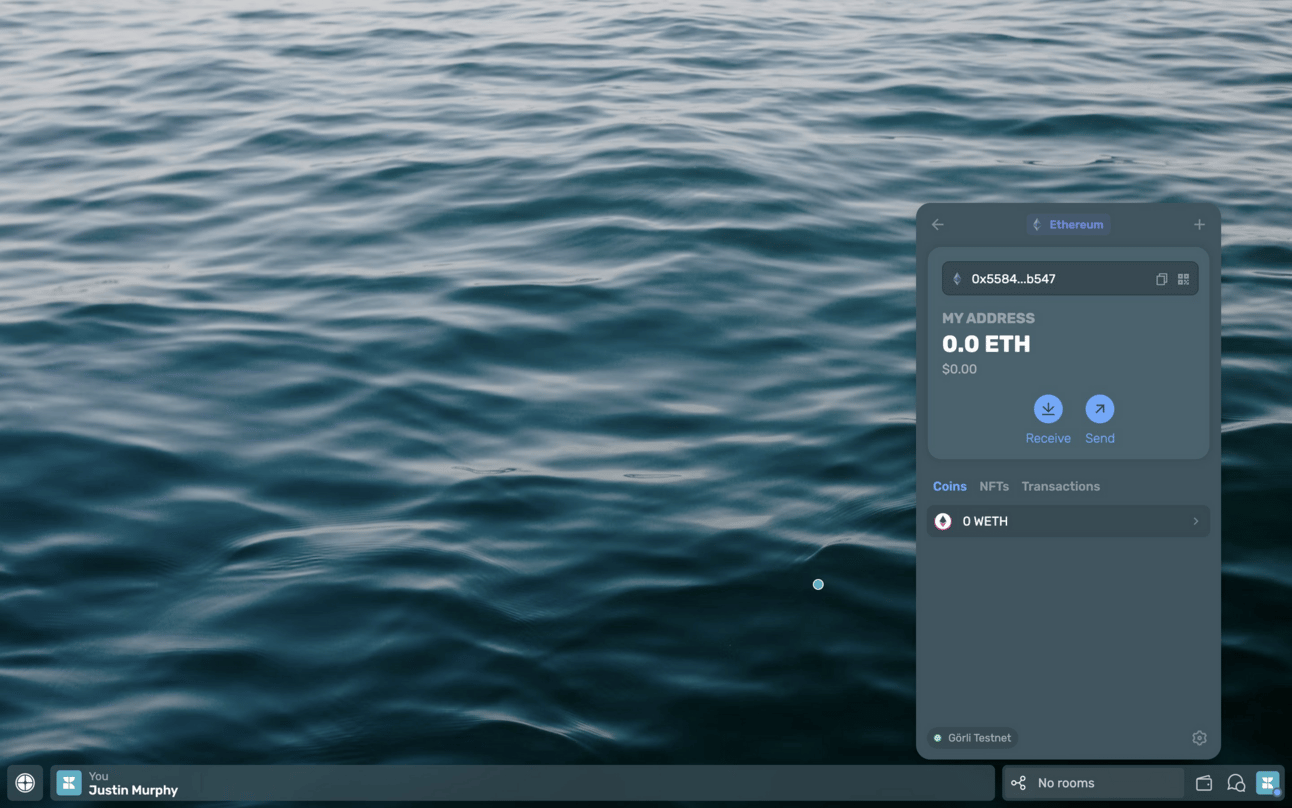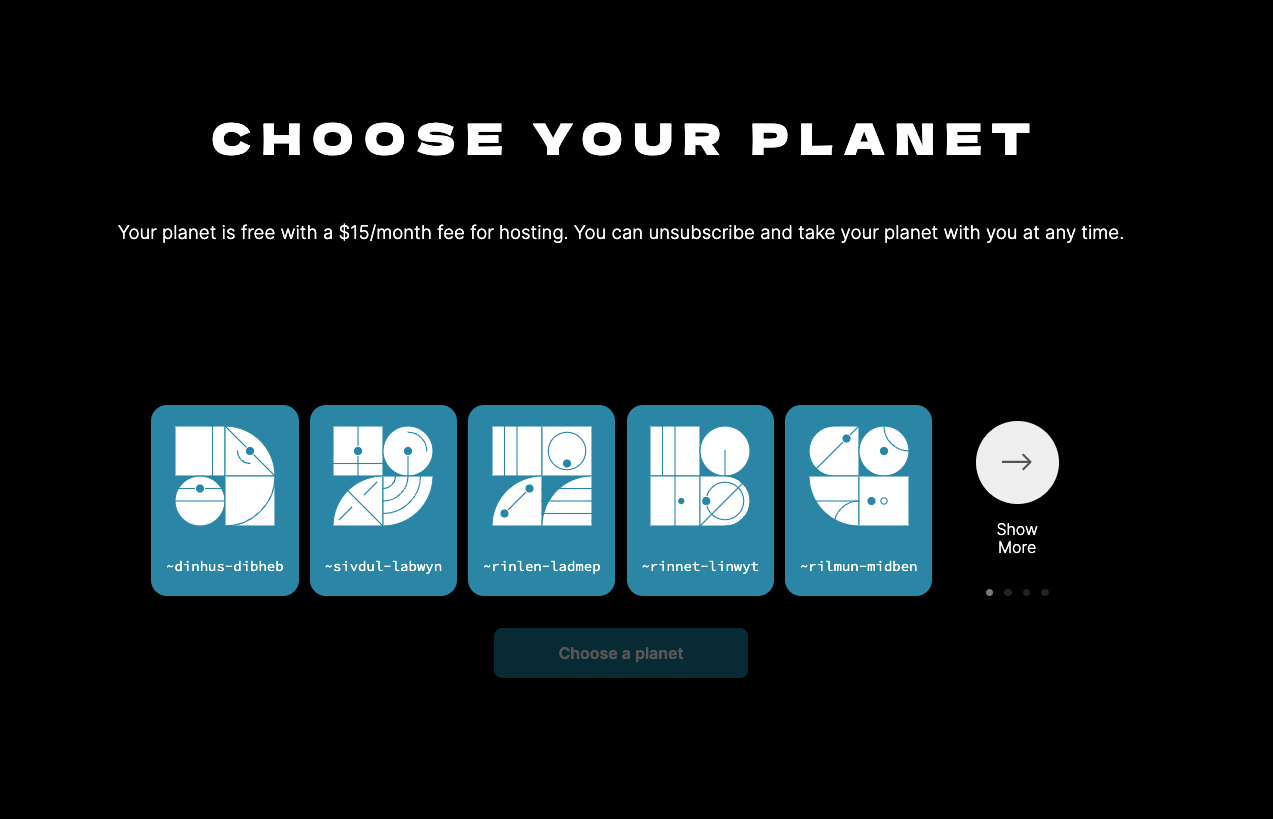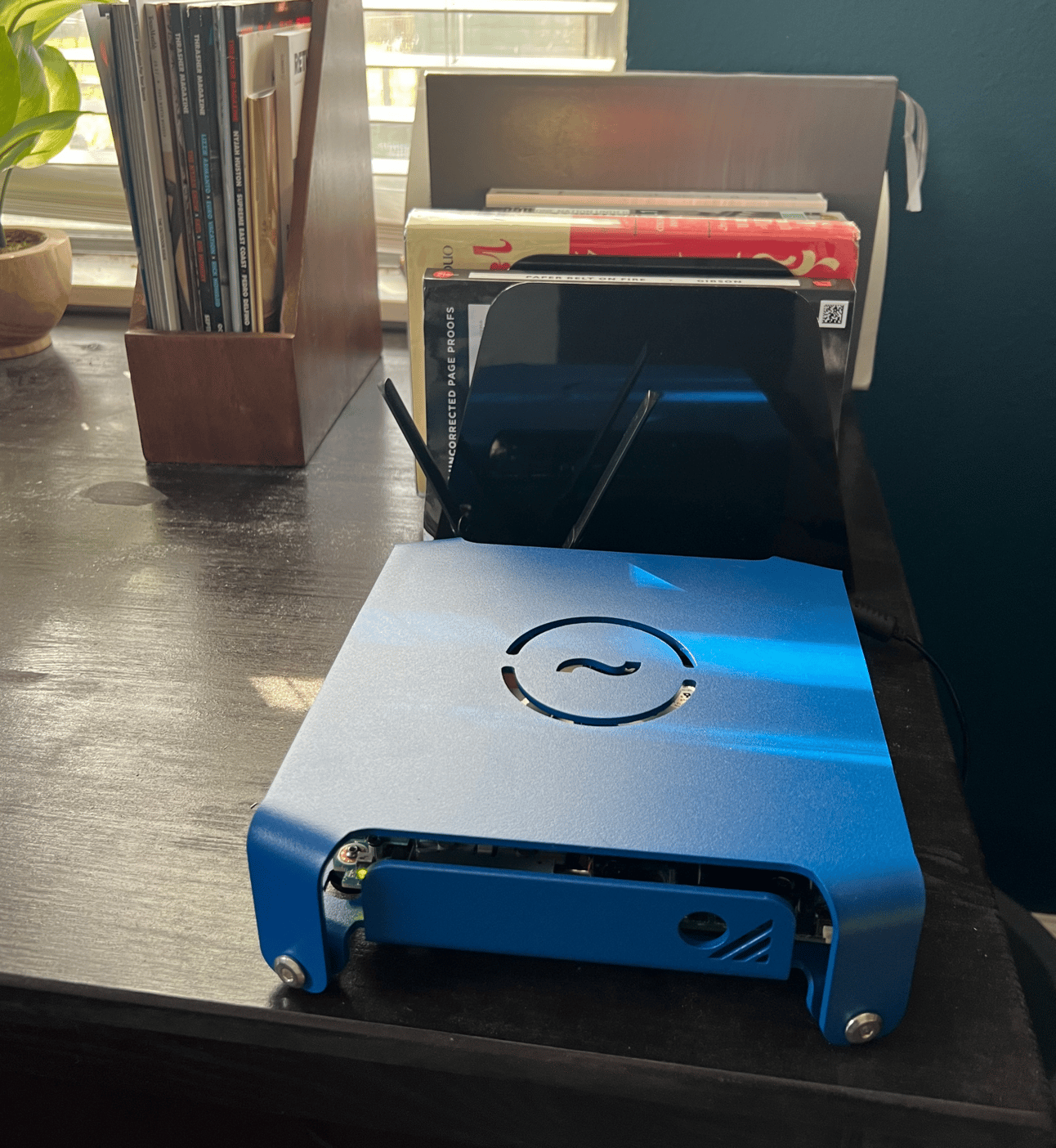
Ever since I articulated my first thesis about Urbit two years ago, I’ve never felt more confident that Urbit is the future of personal computing.
For more than 10 years, people have doubted whether Urbit is a serious threat to the contemporary computing stack.
But most of the dominant critiques of Urbit are getting disproven.
So in this post I'd like to share with you 5 specific developments that are proving the haters wrong:
Urbit now has Ethereum wallets integrated with direct messages
Urbit now runs pure JavaScript applications
Urbit now has networked applications leveraging programmable money
Anyone can now join Urbit quickly and easily
You can now host your ship from home easily
Urbit is free and open-source. Anyone can join and use the network at no cost. If you'd like to try it, you can get a free Urbit ship at imperceptible.computer.
At the end, I'll discuss one way that I think the haters are still correct!
Ethereum wallets are now integrated with direct messages
If there is one thing that Web3 communities most often discuss the need for, it’s probably “we should be able to transact via DMs.”
Holium’s Realm app now has an ETH wallet, integrated with DMs. Realm is still in private alpha, but “Web3 Discord” is here and it works. Thanks to Urbit’s unique powers, namely the advantages of personal servers, there’s just no other game in town that’s going to provide communities a better system any time soon.

Ethereum wallet in Holium's desktop app Realm
The Ethereum wallet is on the Goerli testnet right now, but it’s only a matter of time.
🟢
If you'd like to try Realm, I have some invites! Just drop your email here.
Pure JavaScript applications on Urbit
One of the biggest critiques of Urbit is that it’s “inaccessible to developers.”
Urbit proponents have always said that software developers eventually will be able to use their preferred languages on Urbit. But it's taken some time to see evidence of this.
That's why TomeDB by AJ LaMarc is quietly turning the heads of many Urbit skeptics in private quarters right now.
TomeDB lets developers build standard JavaScript applications for the browser, which also run as Urbit-native apps. This means any standard web app today—say, the Uniswap app—only requires modest Javascript updates for it to also function (as is) with all of Urbit’s novel affordances (for instance, in-app social context switching provided by Holium’s Realm).

An Urbit app written purely in Javascript
Start integrating your apps with Urbit now.
Networked applications with programmable money
People are playing poker with money on Urbit. It’s testnet money, but nonetheless!

%pokur by Uqbar
This is not a small milestone.
Urbit will be the first place where thousands of people engage in rich, fluid, and non-trivial social activities involving programmable transactions.
Why am I so sure? Well, are you seeing this anywhere else right now?
This isn’t a game engine with in-game transactions that go nowhere. This isn’t an Axie-style tokenomics adventure.
This is just basic infrastructure that will let any social-networking application leverage programmable transactions settling to Ethereum.
The Pokur app is proof that it works. It's here and it's coming.
Anyone can now join Urbit quickly and easily
One of the other longest-running critiques of Urbit is that it’s too difficult for “normal people.”
This critique is now definitively false.
Any person can now join Urbit quickly and easily without ever touching a command line.
New users can now get their own private, personal server in the cloud, accessible from all of their devices, without ever seeing a line of code.
Tlon Hosting, Holium’s Realm app, and Tirrel’s Planet One all offer near-instant and seamless onramps for around $15/month.
I'm biased but I personally recommend new users join through Other Life’s custom community onramp. We have a cool little planet-picker widget made by Tirrel, we have a large and active community, and we give our members high-quality onboarding tutorials.

Instant no-fuss Urbit onboarding via imperceptible.country
At-home hosting
It’s now possible to keep your Urbit ship at home, and still enjoy the benefits of running it in the cloud.
I recently got a demo of Native Planet’s Tellurian, a little metal box that just plugs into the wall and connects to your wifi. You just open a web page and set it up. Ships running on this box function exactly the same as ships running on Digital Ocean or on a professional Urbit host. The Tellurian costs $500 but reduces your monthly hosting cost to only $5/month (technically you can do it all yourself for free, but Native Planet offers a subscription that offers several convenience features).

The Tellurian in my study, from Native Planet
Honestly though, it’s just really cool. It’s just fun and beautiful to know that I’m running a personal server on a peer-to-peer network from this slick little machine in my office.
The one critique that is still true
I’m obviously an Urbit bull, but I’m not a naive cheerleader.
Critics have often questioned whether Urbit’s architecture will really allow it to serve large numbers of normal people. This critique can be framed in different ways, but ultimately the fear is that—whatever the reason might be—this thing is just not going to work for thousands or millions of everyday users.
And the truth is that, today, the Urbit network is not yet smooth and reliable enough. It’s quite good, but the expectations of everyday users today are very high. Urbit is really close, but if I’m being honest it’s really not fully there yet.
To be specific, over-the-air system updates still frequently cause all kinds of unexpected difficulties for everyday users and application developers. There are also still idiosyncratic issues with ships not being able to find other ships, or not being able to find apps or groups. Many of the underlying issues are understood and being worked on; the core developers are extremely sharp and hard-working. My point is just that the end-user reality remains just a little too imperfect for primetime. Even long-time and technically sophisticated Urbit bulls have been getting frustrated lately.
This is a serious problem.
I can usually teach non-technical users how to fix the problem in a couple clicks and a mysterious “copy and paste this into your dojo.“ My audience is relatively sophisticated and many people are willing to tinker. But obviously, most people are not.
This is, without a doubt, a major brake on network growth at this point in time.
Smooth and reliable functioning 99.9% of the time is table stakes for consumer applications. And the pain caused by the unhappy .1% needs to be capped.
There are people much smarter than myself working on all of these things, so I have no pretension of advancing the matter technically. I just want to be honest and realistic.
Personally, I trust these matters will be resolved and the network will gradually approach 100% smooth reliability for all users. You have to remember that Urbit is speedrunning a process that took the current stack more than 40 years (arguably longer, depending on how you define it).
Conclusion
Urbit is insanely cool and it's winning, after more than 10 years of people saying it would never work.
The haters are now almost definitively wrong on several counts, and soon they'll be wrong on all counts.
At least that's my bet. I could be wrong! But sometimes it's just fun to believe in something, you know?
Disclaimer: I hold positions in companies discussed above. I am, or have been, a paid advisor/consultant to companies discussed above. Assume that my opinions are biased and this is not financial advice.